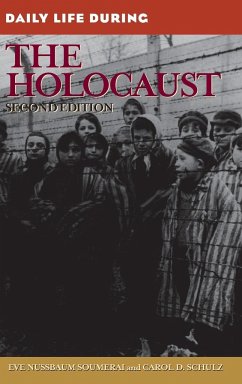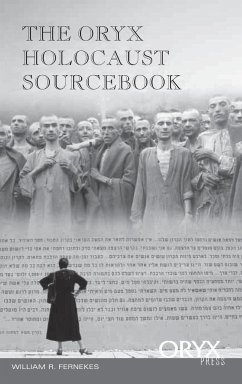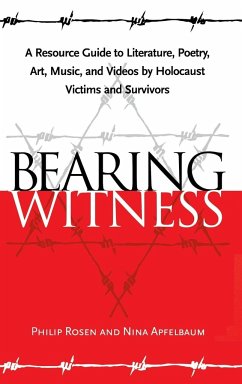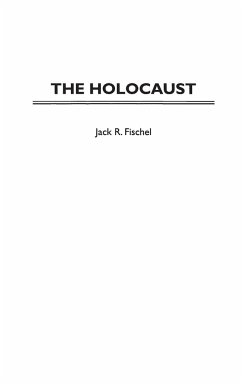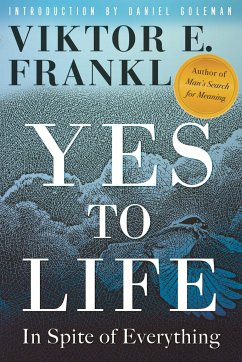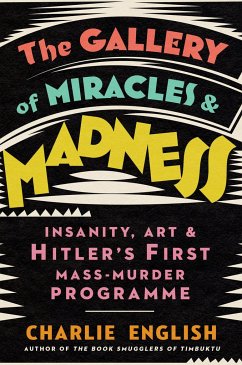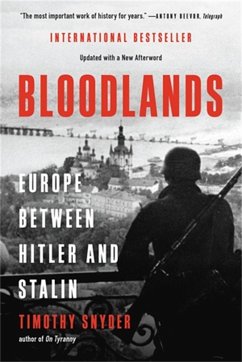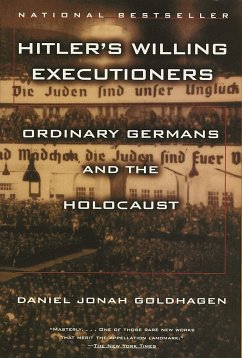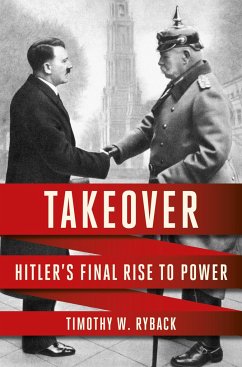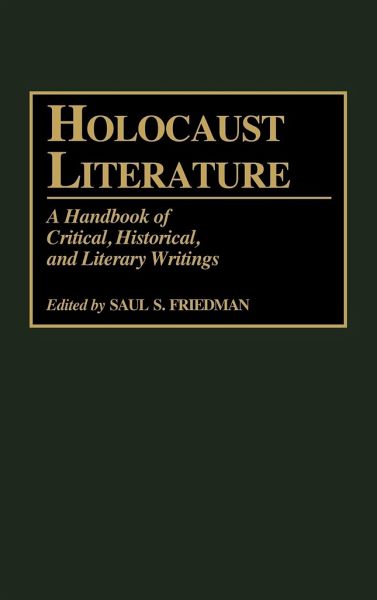
Holocaust Literature
A Handbook of Critical, Historical, and Literary Writings
Herausgeber: Friedman, Saul S.
Versandkostenfrei!
Versandfertig in 1-2 Wochen
80,99 €
inkl. MwSt.

PAYBACK Punkte
40 °P sammeln!
Over the past forty years, the term Holocaust has come to represent the deliberate campaign of extermination of Jews by the Nazis of Germany's Third Reich preceding and during World War II. Masses of edited documents and analytical material have been generated by Holocaust scholars, and some bibliographical and encyclopedic guides to the field are available. However, a student or researcher may be confounded by the abundance of publications and may lack the necessary background and endurance to sift the wheat from the chaff. The present volume has a two-fold purpose: to offer substantial analy...
Over the past forty years, the term Holocaust has come to represent the deliberate campaign of extermination of Jews by the Nazis of Germany's Third Reich preceding and during World War II. Masses of edited documents and analytical material have been generated by Holocaust scholars, and some bibliographical and encyclopedic guides to the field are available. However, a student or researcher may be confounded by the abundance of publications and may lack the necessary background and endurance to sift the wheat from the chaff. The present volume has a two-fold purpose: to offer substantial analysis in intrinsic areas of study and to assess the relevant literature in each case. Major scholars and brilliant, less established historians from Israel, Canada, and the United States have contributed more than thirty essays complete with extensive reference lists in three broad divisions. The section on conceptual approaches to the Holocaust is composed of such topics as the rise of national socialism, biographies and interpretations of Hitler, concentration camps, post-Holocaust Jewish philosophies, and the righteous gentiles. Area studies deal with aspects of the Holocaust in Poland, Hungary, Czechoslovakia, Ukraine, the Balkans, France, Holland, Italy, and Spain, and with effects and reactions in Switzerland and Britain. Arab-German collaboration and American responses are also addressed. A third section takes up Holocaust subjects in education, belles lettres, and the arts, including diaries and memoirs, fiction, poetry, books for children, art, music, and films. Although the scholars all provide evaluative surveys of their subjects and related literature, each enjoyed considerable latitude in coverage and each presents his or her own views and selections, not all of which are shared by other contributors or the volume editor. The editor also provides an introduction and a final survey of major institutions and resources for Holocaust study. A significant reference tool, this volume will be consulted by researchers at all levels in university, public, secondary, and parochial school libraries and at religious institutions.



